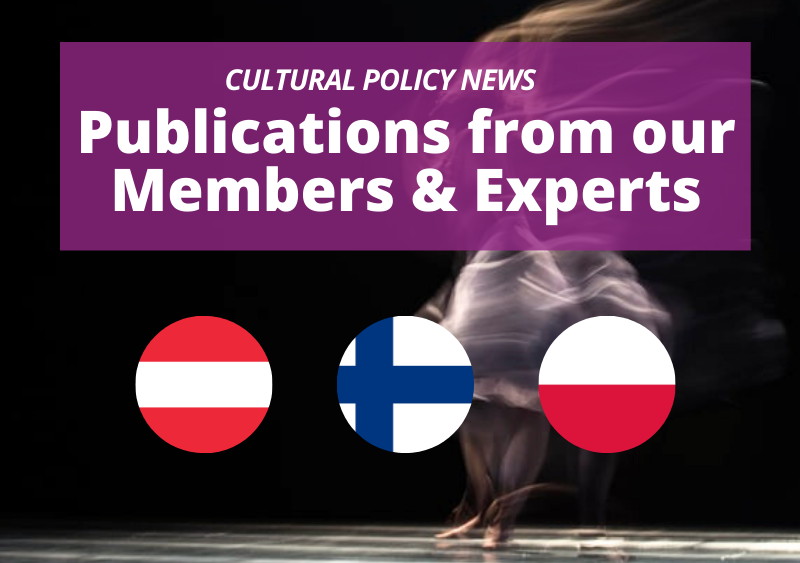Two of of member states, Austria and Finland, as well as our experts from Poland, have recently released relevant publications in the field of cultural policy research, which we would like to highlight in this post: Austria’s Digital Cultural Heritage Strategy, CUPORE’s Report on Oulu2026 – European Capital of Culture, and a book publication from our Polish experts on the labour market of artists.
Austria | Digital Cultural Heritage Strategy
The Austrian government’s 2020-2024 programme emphasises the preservation and enhancement of cultural heritage through digitisation and improved accessibility, in line with EU directives and the Austrian Digital Action Plan. The Digital Cultural Heritage Strategy, which has been developed with stakeholders and experts since the beginning of 2022, aims to assess the current digital integration of cultural heritage, identify potentials and challenges, and propose concrete actions in various areas such as policy development, cataloguing, outreach, research and legal frameworks. Recommendations are addressed to both regulatory bodies and cultural institutions and advocate for digital literacy training, individual digitisation strategies, increased outreach, research, value chain exploration, platform development and the establishment of a national centre of competence.
Finland | Towards Oulu2026 – European Capital of Culture
The Center for Cultural Policy Research in Finland (CUPORE) has released a report monitoring the European Capital of Culture activities in Oulu, which they will release annually until 2026. Oulu decided to apply the title of European Capital of Culture in 2017 and in early June 2021, Oulu, along with its partner municipalities, was officially designated as the European Capital of Culture for the year 2026. This report presents a baseline assessment of the Oulu2026 activities in the year 2022. The evaluation framework is based on specific indicators that align with the objectives of European Capital of Culture. These indicators have been defined in collaboration with the Oulu2026 team from the Oulu Culture Foundation, which is responsible for the implementation of the Oulu2026 activities. The framework of indicators is aligned with EU guidelines.
Poland | Artist Labour Market, Cultural Policy and Creative Economy
The Artists Labour Market, Cultural Policy and Creative Economy: A Triangular Model in Poland is the result of analytical and research work initially carried out by three cultural economists: Prof. Dorota Ilczuk, Anna Karpińska, and Dr. Emilia Cholewicka. The book brings together the multifaceted issue of artists in the labour market, which is examined from several angles. First, it contextualises the issue within established findings in cultural economics. Second, it considers the evolving landscape of cultural policies, market dynamics, and global shifts that affect artists in particular.


Comments are closed.